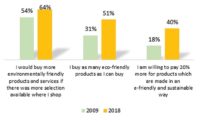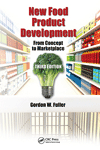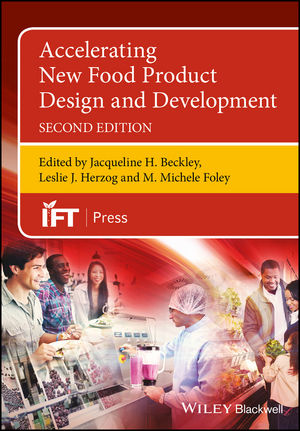Many sustainability experts and consumers alike agree that we cannot sustain a society in which we continually make purchases and throw things away. This includes consumables that we use on a daily basis. This mentality extends beyond the product itself to its packaging. The food industry is one area where this dilemma reigns, and the snack and bakery sector would do well to rethink how they deliver products to consumers in order to tap into this growing concern about reducing waste in packaging.
While a majority of consumers are concerned about the wastefulness of our society, certain groups are more inclined to have a deeper level of concern. Since 2002, NMI has conducted an annual research study which provides a wealth of data regarding consumer propensity toward sustainability, and has segmented the U.S. general population into five distinct consumer segments, which range from the most “green” in terms of thoughts and actions (LOHAS—23 percent of the general population) to those who are not concerned at all about sustainability issues (Unconcerneds—28 percent of the general population). The list below shows the distinctions in opinions about the wastefulness of our current society, with LOHAS consumers clearly expressing overwhelming concern.
Percent of consumers indicating they agree completely that “I think we live in a wasteful society”:
- LOHAS: 89 percent
- Naturalites: 73 percent
- Conventionals: 66 percent
- General population: 61 percent
- Unconcerneds: 48 percent
- Drifters: 33 percent
There is a broad shift underway at major U.S. corporations to reduce waste. The sourcing and “end life” of packaging will become significantly more relevant, as the product life cycle and waste impact are becoming a stronger part of consumer purchase decisions. Consumers are also becoming more concerned with chemicals in packaging that can leach into the product. Changing the type of packaging material is one answer to reducing the environmental impact of packaging, but a simpler, more-immediate response is to reduce the amount of packaging.
To that end, a majority of consumers (71 percent) think that many products are over-packaged and three in 10 will look for something else to buy when they see something they perceive as having too much packaging. Furthermore, 30 percent consider “minimal packaging” as very important to their purchase decisions, a sentiment which shows 14 percent growth from 2008–2018. But such efforts need to balance against consumers’ never-ending desire for convenience, which sometimes tends to come with a single-use or single-serving mentality, particularly in the snack food industry.
Consumers are becoming increasingly aware that the decisions and purchases they make can affect the sustainability of the world, and they are making choices that have a positive effect in this regard. The environmentally friendly choice is becoming increasingly popular. However, while sustainable choices are important, consumers do not want to compromise anything when making their purchases: not quality (71 percent), not price (60 percent) and not convenience (47 percent). So while snack and bakery companies strive to offer options which appeal to customer desires for a positive impact on the environment, they also need to first and foremost ensure their offerings are meeting the key attributes consumers want—preferably without trade-offs.
In the end, consumers are clearly motivated to buy from food companies that promote sustainable practices, and packaging is a clear way to provide consumers a differentiating choice and a fairly straightforward option. But not offering sustainable options has an effect as well: almost one-quarter of consumers have stopped purchasing from a company after learning that the company did not practice environmental responsibility. Those who incorporate and offer an array of sustainable choices will be better positioned to meet consumer demand for a higher level environmentally friendly engagement.









